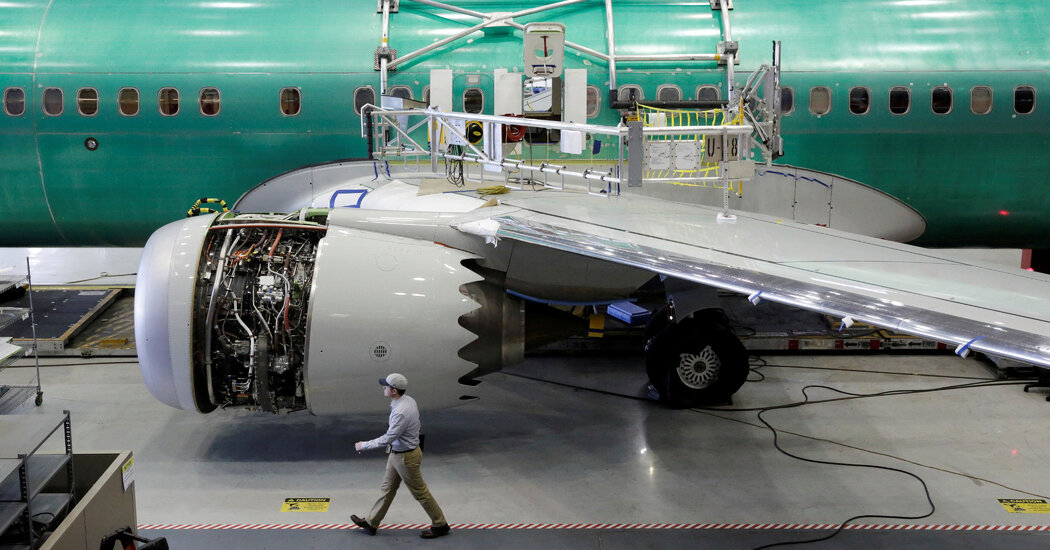After two deadly crashes involving its best-selling 737 Max 8 planes five years ago, Boeing spent billions of dollars to make its products safer and repair its reputation. Now, the company is again confronting a wave of uncertainty and costs after a harrowing incident involving a different 737 jet.
Just four weeks ago, a hole blew open on a 737 Max 9 jetliner during an Alaska Airlines flight shortly after takeoff when what appears to have been a poorly attached panel tore away. The Alaska pilots made an emergency landing as terrified passengers feared the worst.
The incident has prompted the Federal Aviation Administration to indefinitely halt Boeing’s ambitious plans to raise production of Max planes. Passengers have filed class-action lawsuits against the company. And some infuriated airline executives are taking the rare step of criticizing Boeing publicly and expressing doubt about its ability to deliver planes when they were expected. The chief executive of United Airlines has gone so far as to suggest that his company might cancel some of its orders with Boeing.
A case the company settled with the federal government for $2.5 billion in the waning days of the Trump administration to avoid prosecution could be reopened if the Justice Department determines Boeing did not comply with the terms of the deal.
Boeing referred questions about that agreement to the Justice Department, which declined to comment.
Compounding problems for Boeing, a supplier found a new problem with fuselages on dozens of unfinished 737 Max planes, the company said on Sunday. In a note to employees, Stan Deal, the chief executive of Boeing’s commercial plane unit, said the supplier last week identified that “two holes may not have been drilled exactly to our requirements.”
He did not name the supplier. But a spokesman for Spirit AeroSystems, which is based in Wichita, Kan., and makes fuselages for the Max, said a member of its team had identified an issue within the past week that did not conform to engineering standards.
Mr. Deal said that the problem was “not an immediate flight safety issue” but that it would force the company to rework about 50 planes, delaying their delivery.
Such delays, even if they prove short, could add up over time and lead to lower profits or bigger losses for Boeing. The company lost $2.2 billion last year after losing $5 billion in 2022.
There is so much uncertainty surrounding Boeing that its executives last week declined to provide a…
Click Here to Read the Full Original Article at NYT > Travel…
